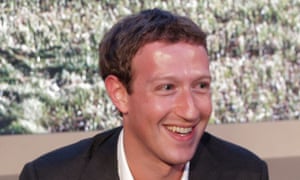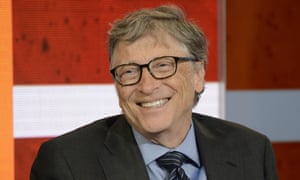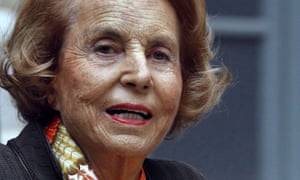World’s 20 richest people are $70bn poorer, says Forbes
Annual ranking of billionaires shows their number is down on last year and that the biggest loser is telecoms tycoon Carlos Slim

Spare a thought for the billionaires of the world: the combined wealth of the 20 richest people on the planet has fallen by more than $70bn (£50bn) following a slump on global financial markets.
The latest annual ranking of billionaires by Forbes shows that falling share prices, a dramatic drop in the price of oil, and volatile currency markets have shaken the global elite.
The combined wealth of the top 20 has fallen from $899bn last year to $827bn and the number of billionaires in the world has fallen from a record 1,826 in 2015 to 1,810.
It is the first time that the number of billionaires has fallen for seven years and the first drop in the wealth for the top 20 since 2012.
But more than a third of the $70bn decline was down to just one man: Carlos Slim, the Mexican telecoms tycoon. Slim has seen his fortune drop from $77.1bn to $50bn in just 12 months. Shares in his bank Grupo Financiero Inbursa, telecoms company América Móvil, and mining group Minera Frisco have all tumbled.
As a result Slim is no longer the second richest man in the world – and is merely fourth on the list.
Bill Gates is once again the richest man in the world, although even the Microsoft founder’s fortune has dipped, from $79.2bn to $75b

The list continues to be dominated by men. Out of 1,810 billionaires, just 190 are women, down from 197 in 2015.
Both the female billionaires in the overall top 20 inherited their wealth, including Liliane Bettencourt, the heir to the L’Oreal empire, and Alice Walton, daughter of the Walmart founder, Sam Walton.
The richest self-made woman in the world is Zhou Qunfei, who is ranked 205th and valued at $5.9bn. She made her fortune by founding the touchscreen maker Lens Technology, whose biggest customers are Apple and Samsung.
Zhou, who is rarely seen in public, grew up in a small village in Hunan, central China. Her mother died when she was five and her father was badly injured in an industrial accident. She helped her family raise pigs and ducks for their food before moving to Shenzhen to work in a factory, making watch lenses in harsh conditions.
After winning promotion she eventually saved up $3,000 and decided to set up her own business producing high-quality lenses. This grew into Lens, which today employs more than 75,000 people.
Across all billionaires, 1,186 are self-made, 228 inherited their wealth and 396 inherited a portion, but are growing it. Just 33 of the 190 female billionaires are self-made.
The biggest gainer on the list was Mark Zuckerberg, the boss of Facebook, whose wealth grew by $11.2bn to give him a total net worth of $44.6bn. Zuckerberg is the sixth richest person in the world, behind Jeff Bezos, the Amazon founder, Slim, investor Warren Buffett, Amancio Ortega, the Spanish businessman behind the Zara fashion empire, and Gates.

The only people in the top ten to see their value increase over the last year were Zuckerberg, Bezos, potential presidential candidate Michael Bloomberg, and Ortega.
Ortega, 79, is Europe’s richest man after building Inditex, which owns Zara, the biggest fashion retailer in the world.
Ortega is fiercely private but is regularly seen in the staff cafeteria at Inditex’s base in Arteixo, a small town in northern Spain close to the city of A Coruna.
The Spaniard and his business partner Rosalia Mera opened their first store in A Coruna in 1975. They wanted to call the shop Zorba, after their favourite film, Zorba the Greek, but were forced to change because a bar further down the street had the same name. They called the shop Zara instead because they wanted to keep as many of the same letters as possible.
Zara and Inditex, which do not advertise, have become renowned for “fast fashion”. At at time when other companies were sending manufacturing to the Far East, Inditex focused on making as many clothes as possible in Europe, allowing it to stock its shops with the latest fashion quicker than its rivals. Even today, every single item of clothing that Zara sells goes through Spain.
There are 489 in Europe, with the wealth of the continent’s billionaires growing from $1.19tn to $1.83t in the last year.
The United States remains home to the most billionaires. There are 540 American citizens on the Forbes list compared to with 536 last year.
However, not every billionaire was happy with their fortune. Forbes has admitted it had a “intense interaction” with Donald Trump about the value of his wealth. The US presidential candidate has repeatedly claimed he is worth more than $10bn, and sent documents to Forbes to try to prove it, but the report has put his fortune at $4.5bn, up from $4.1bn last year. The discrepancy is thought to be at least partly down the valuation Trump puts on his own brand.
The number and value of billionaires in Asia-Pacific also grew, but the Middle East, Africa and the rest of the Americas took a hit as the value of oil and other commodities fell sharply. The number of billionaires in the Middle East and Africa fell from 106 to 90, while the Americas, not including the US, fell from 140 to 101.
China has the most billionaires after the US, with 251, up on 213 last year. Germany is third with 120 and India is fourth with 84.
The UK has 50 billionaires, down from 53 in 2015. This includes seven newcomers, including theatre producer Cameron Mackintosh and John Bloor, theowner of Triumph Motorcycles.
Nick Bryer, head of inequality at Oxfam, said the scale of the wealth enjoyed by the richest people highlighted the growing inequality in the world.
He said: “Market fluctuations have caused the combined wealth of the world’s richest 20 people to drop but their collective $827bn is still greater than the GDP of Turkey.
“The long-term trend remains one of runaway inequality that is slowing economic growth and undermining the fight against poverty.
“Governments need to act now – starting with a crackdown on tax havens that allow the super-rich individuals and big companies to avoid paying their fair share of tax and rob poor countries of billions each year that could help to fund schools and hospitals.”
[Source:- Thr Gurdian]
